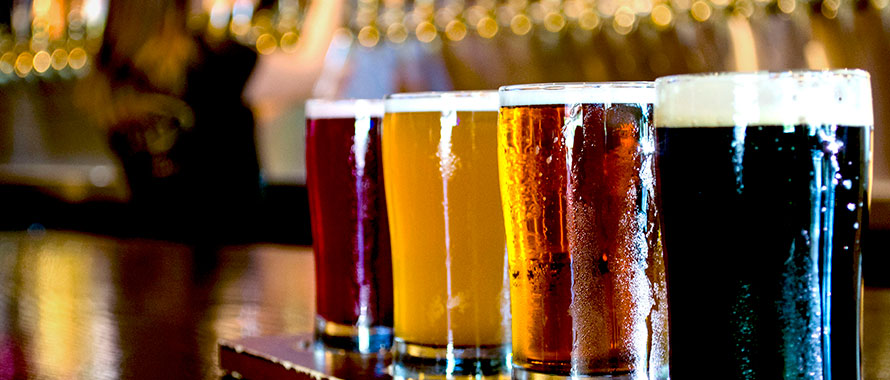Relatives of the victim of a tragic DWI accident in North Texas are seeking more than $1 million from a restaurant and its employees, claiming that the staff was not properly trained and the establishment lacked proper policies to serve alcohol.
Featured Solutions
“This is, unfortunately, something that we see fairly regularly where dram shops get accused of overserving or not following proper procedures,” said Jordan Muckway, Manager, Commercial Insurance, Burns & Wilcox, Dallas/Ft. Worth, Texas. “When something as tragic as a death occurs, it is obviously a horrible loss for the family and the financial burden is also very significant here.”
The lawsuit involves a crash that took the life of a North Texas police detective and injured his wife and two sons. It was reportedly caused by a 27-year-old drunk driver who had been served multiple drinks in short succession at a Fort Worth, Texas, restaurant before he got in his vehicle on Nov. 27, 2021.
The lawsuit accuses the restaurant of having an inadequate and negligent alcohol server policy, claiming that both the bartender and manager working were unlicensed and that they served the driver and allowed him to leave and operate a vehicle despite his “obvious intoxication,” WFAA reported last month. The suit also names the driver, bartender, the parent company of the establishment, and General Motors, according to the Fort Worth Star-Telegram.

In Texas, servers do not have to be TABC-trained and bars are not required to carry Liquor Liability Insurance. I think this situation shows that those are both very important things to have.
In Texas, TABC certification is recommended for servers but not required, said Connor Farquharson, Manager, Commercial Insurance, Burns & Wilcox, Dallas/Ft. Worth, Texas.
“It was interesting that they were not TABC-trained and the establishment did not seem to have very strong internal controls for someone who is overserved,” Farquharson said, pointing to reports that the driver even entered a staff-only area before leaving the bar. “In Texas, servers do not have to be TABC-trained and bars are not required to carry Liquor Liability Insurance. I think this situation shows that those are both very important things to have.”
Defense costs alone could exceed ‘hundreds of thousands’ of dollars
According to reports, the driver in the Texas incident plead guilty to intoxicated manslaughter and intoxicated assault and was sentenced to 15 years in prison. The monetary damages being sought by the detective’s family account for pain and suffering, funeral expenses, mental anguish, future wage-earning losses, and more.
When an establishment faces allegations of overserving, underage serving or other negligence in its sale of alcohol, the bar’s Liquor Liability Insurance could cover expenses related to third-party bodily injury or property damage, including medical expenses, as well as legal defense and settlement amounts.

Maintaining proper limits for the exposure is important. A lot of times, a limit of $100,000 or $200,000 is not going to be enough coverage.
“Anytime there is a liability claim where a death could be linked to the establishment, defense costs can go into the hundreds of thousands if not millions of dollars,” Muckway said.
Depending on the Liquor Liability Insurance policy, these legal expenses could be included inside or outside of the policy’s limits. “Having defense outside the limits is something to be paying attention to,” Muckway said. “Maintaining proper limits for the exposure is important. A lot of times, a limit of $100,000 or $200,000 is not going to be enough coverage.”
Liquor-serving establishments could also be liable for third-party property damage in some cases. A woman in Canada recently filed a lawsuit against a beverage company that served her alcohol before she crashed her vehicle into a house in 2019, breaking a gas line and causing an explosion that led to up to $14.7 million in damages, The Independent reported in January. The woman, who was sentenced to three years in prison in 2021, alleges that Ovations Ontario Food Services shares liability for the incident — including any settlements that may be awarded in lawsuits filed by victims of the explosion — because the bar served her despite allegedly knowing she was intoxicated, the report stated.
“Drunk driving is probably the most common claim that the Liquor Liability Insurance is covering,” Farquharson said. “These incidents can also cause a lot of property damage with individuals driving into homes or falling asleep at the wheel.”
The Texas lawsuit is “a very complex claim” because it also names General Motors, Farquharson said, so it could trigger the automaker’s Products Liability Insurance or Commercial General Liability (CGL) Insurance.
“It does have two different types of claims in one — products liability and liquor liability,” he said, noting that the case demonstrates how multiple entities can be pulled into litigation after an accident. “They may find multiple at-fault parties from various factors of a single claim and it can spiral into multiple types of lawsuits.”
St. Patrick’s Day crowds can heighten alcohol serving risks
Bars and restaurants should review their alcohol serving policies and procedures regularly, especially in advance of busy “bar nights” like St. Patrick’s Day, Muckway said. “Anytime there may be large crowds coming in and individuals may end up drinking more, they really need to be paying attention to who is in charge of serving alcohol,” he said. “Sometimes they can lose track of how much someone has been served just because of how busy it is.”
According to a fact sheet from the National Highway Traffic Safety Administration (NHTSA), St. Patrick’s Day is often a particularly deadly day on U.S. roads. In the two-day period around St. Patrick’s Day in 2020, 36% of crash fatalities involved a drunk driver, NHTSA reported. In 2019, 57 drunk driving deaths occurred on the holiday. While the risk may be elevated on holidays, an average of 32 individuals are killed each day in drunk-driving crashes in the U.S., according to the NHTSA. In Canada, police data shows that up to 155 individuals were killed due to impaired driving in Canada in 2019 and 540 individuals were injured, according to Statistics Canada.
In advance of holidays, establishments should have additional safety meetings with staff and review signs of intoxication that could indicate someone is at risk for being overserved, Muckway said. “It is proven from an insurance standpoint that [server training] can help mitigate losses,” he said. “There are several instances where businesses get pulled into claims where it may have been one drink but the individual was already intoxicated. Having Liquor Liability Insurance and transferring that risk onto an insurance company helps eliminate the potential financial burden of a large loss.”
In addition to drunk driving accidents, bars and restaurants could face liquor liability lawsuits over slip-and-fall accidents or fights that occur among intoxicated patrons. Liquor Liability Insurance policies may vary, Farquharson said, including as it relates to coverage for assault and battery. “Whether fights would be covered would come down to how the policy addresses assault and battery,” he said. “Always review the forms and review your limits.”
Business owners should read their policies carefully and “make sure that the establishment is listed correctly on your policy,” Muckway added. “That could save you a lot of headache of getting a claim denied for something as simple as that.”
Claims can be catastrophic, shut down businesses
While the latest Texas case seeks $1 million in damages, multi-million-dollar settlements are not unheard of in liquor liability lawsuits. Settlements and legal defense costs have been rising over time, in part due to inflation and an increasingly litigious society, Muckway said. “Costs are obviously rising with the nature of everything else going up right now, so that is something else to keep in mind,” he said. “Attorney fees will continue to rise.”
In December of 2019, a Texas jury awarded a historic settlement of over $301 billion in a lawsuit filed by the family of a 59-year-old woman and 16-year-old killed by a drunk driver in 2017, alleging the establishment served the driver a “dangerous” amount of liquor, Insurance Journal reported. The record-breaking settlement was reportedly only symbolic, the family’s attorney said, as the bar had since shut down and the previous owners would not be able to pay, according to CNN.
While that case was an outlier, overall costs are increasing, Farquharson agreed. “Everything is more expensive than it was and the courts are more packed. Claim costs are going to go up because of those factors,” he said.
Another large judgment was announced in July of 2022, when a jury in Miami-Dade County, Florida, awarded $95 million in damages to a family whose daughter was killed and son was injured in a drunk driving accident in 2015 after the driver was allegedly overserved, Claims Journal reported.

You need to have strong controls in place for intoxicated patrons and follow those controls that you have in place.
These large settlements are “causing the premiums to go up and coverages to go down because insurance companies are trying to mitigate their risk,” Farquharson said. “You need to have strong controls in place for intoxicated patrons and follow those controls that you have in place,” he said.
Dram shop laws vary by state and can impact an establishment’s potential liability for liquor-related incidents, Muckway explained. “From an insurance perspective, it is very important to understand the state you are operating in and what the repercussions may be,” he said.
While requirements may vary on whether bars need to carry Liquor Liability Insurance or have their servers certified by a state training program, both are important steps that could help protect the business, Farquharson emphasized. “It may not be required but it is a very good idea to do both,” he said. “Even as servers, you can have liability for somebody else’s actions.”







